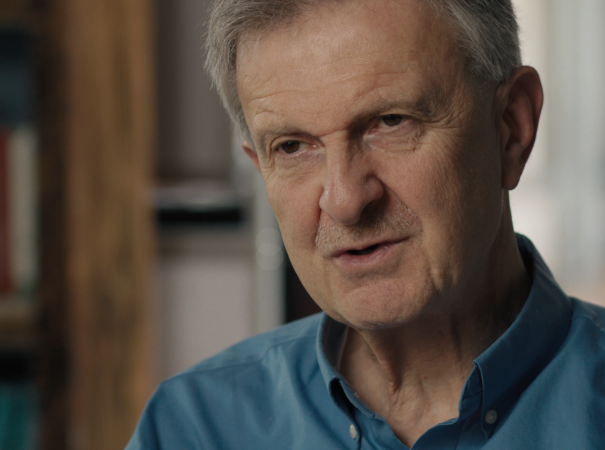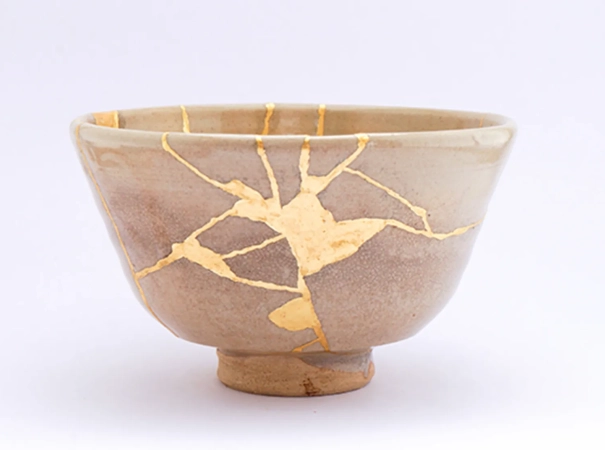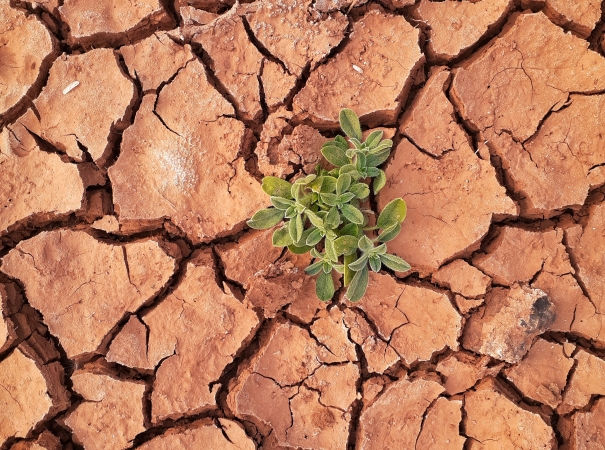Transcript:
The reason I became a psychologist was I wanted to know how people do well in life. The people who do particularly well in spite of the fact that they’ve got difficult life circumstances always intrigued me.
So I was talking to my good friend and colleague, Lawrence Calhoun, about this and he said, so why don’t we try to figure that out? Why don’t we look at the flip side of these kinds of things and learn how people become wise? Where does wisdom come from?
If you look at world religions and different cultures, there’s plenty of stories of Posttraumatic Growth. It’s a commonplace kind of experience that people report. But psychologists hadn’t really studied it very much. The only way you learn as a psychologist about a topic is to interview people who are going through it, instead of assume things.
So we started interviewing people who had gone through bereavement experiences, and also people who had experienced physical disabilities in adulthood. They had become paralyzed, blinded—those kinds of things from illnesses and accidents—but who had done very, very well.
We were somewhat surprised to find that people were telling us stories of what made the difference—how they became way better people as a result of going through these experiences. And some people even told us, which really was surprising, that they don’t regret the fact that they had been through some of these things.
We worked on trying to understand the process by which that happened. We tried to come up with ways of measuring that. And after 10 years of that, we tried to come up with a name, and we hit upon Posttraumatic Growth. And we thought that that would be a good name for it. And it stuck pretty well.
One of the problems in the trauma community, in the trauma literature, is that traditionally nobody’s asked the question about growth. We’ve focused more on the symptoms and the negative things and problems of it. So many people have told us that when we ask these kinds of questions, it’s the first time that they’d had anybody interested in that part of their lives.
What we have found is that it’s a very common experience—more common than not. It’s been really remarkable how from something that people didn’t want to know about, or think about, or pay attention to, how it’s become something people all around the world are interested in, and have researched, and talked to me about.
It’s been very gratifying, like that.
Featured Content
We’ve bookmarked our favorites from the library of Dr. Richard Tedeschi.

The War in Ukraine: PTG vs PTSD
In this video Dr. Richard Tedeschi directly addresses the people of Ukraine and encourages the use of Posttraumatic Growth techniques with those affected by war. Moderated by Dr. Olena Bidovanets

Transformed by Trauma: Stories of Posttraumatic Growth
The book “Transformed by Trauma” challenges popularized beliefs that trauma leads to a life of diagnosis and diminishment. In this book Dr. Tedeschi and co-authors shed light on the age-old concept of Posttraumatic Growth (PTG), highlighting how PTG can help us transform our struggles into strength.

The Posttraumatic Growth Workbook: Coming Through Trauma Wiser and More Resilient
In “The Posttraumatic Growth Workbook,” Dr. Richard Tedeschi and Dr. Bret Moore offer an evidence-based approach to processing traumatic experiences and fostering posttraumatic growth (PTG). Appropriate for people who want to grow from trauma, as well as for clinicians, health and wellness practitioners, and researchers.

Podcast Episode "Speaking of Psychology: Transformation after Trauma", with Dr. Richard Tedeschi
Why do some people experience profound positive changes after enduring something terrible and others don’t? In this episode of Speaking of Psychology, Dr. Richard Tedeschi, discusses all things posttraumatic growth and thriving in the aftermath of trauma.

Posttraumatic Growth Inventory- Expanded (PTGI-X)
The 25-item Posttraumatic Growth Inventory–Expanded Version (PTGI-X; Tedeschi et al., 2017) is the most current evidence-based instrument used in research and clinical work to assess positive changes (PTG) after trauma.

Posttraumatic Growth in Clinical Practice
In this comprehensive book Dr. Tedeschi provides an updated understanding of posttraumatic growth and offers a practical framework that can be customized to meet the specific needs of individual clients and therapeutic approaches.
Give strength & hope to those who serve
Your support powers life-changing programs offered at no charge to veterans, military, first responders, and their families. With your help, our Warriors won't just survive — they'll thrive.
